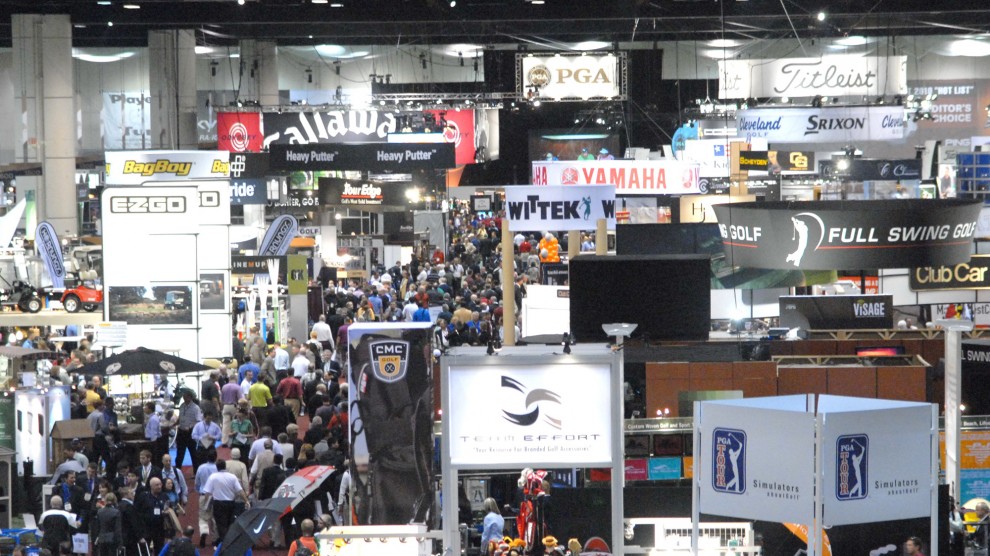ORLANDO, Fla. -- Every year, thousands of people show up to the Orange County Convention Center to showcase their wares.
For a lot of them, it isn't their first rodeo. Hell, it isn't even their 22nd rodeo. They've been around a long time, seen the show rise, fall and level out. Business is done, but it's done when the show ends and the wining and dining starts.
However, for a slew of exhibitors, the PGA Merchandise Show represents the lay-it-on-the-line moment. This is where, after plunking down a sizable chunk of money for a booth, they park their products for public scrutiny and hang their dreams out to twirl in the wind. This could make it or break it.
Show vets will tell you that the first year isn't the sign that an idea will survive in golf. If that idea, that product comes back for Year 2, Year 3 and beyond? Then they've made it.
***
I first met Nick Coleman at the 2013 PGA Show. I was working for Back9Network at the time, and my job wasn't to rove the floor; I had camera crews and talent to do that. My job was to sell the company. Coleman came to the Back9 booth to sell his. His idea? A simple one: a white-glove delivery service for golf clubs to get from one spot to another for a reasonable price. It was called ShipSticks, and it was a way for a golfer to skip the unreliable airliners on golf trips, entrusting Coleman and his team to navigate the world of logistics carriers to get your bag from Point A to Point B in the shortest amount of time and -- on their end -- for the best margin.
What Coleman didn't say was that, when the company had started several months prior, he set up shop on a picnic table with a table cloth. He had two people working for him. He was dealing with customer orders on his phone from the show floor. It was a true startup on a shoestring.
Three years later, ShipSticks is doing incredibly well. For one, they have a booth, which they didn't have in 2013. They've now handled well more than 1 million clubs for customers, many of whose names have been burnt into Coleman's memory thanks to their loyalty for his product. He's expanded his team tenfold. ShipSticks is advertising in print and digital and TV. They're growing. Pro golfers trust him with their tools of the trade. It's a success story -- but ShipSticks still operates like a startup.
Coleman no longer chases the high-margin-fast-delivery option he once did. Now, it's about finding the most efficient, reliable route for a golf bag. It's eliminating, as best he can, when bad things happen. It's taking the ShipSticks idea and taking it to other worldwide markets, all of which have their own challenges.
Coleman told me he didn't want to lose that startup mentality. It's what made him successful with his customers. Sometime later this year -- at least before the next PGA Show -- he'll come out with a ShipSticks app. He held off on building something he felt was superfluous compared to his website. Now he's ready to come out with something that will improve the customer experience.
And that's what we'll talk about at his fifth Show, next January.
***
Clayton Balch and Nik Bando are a couple of guys living the dream in New York. They're young and running a business. What more can you ask for?
The problem, however, is that their business, BogeyBox, is successful but misunderstood. For one, it sounds similar to BirdieBox, a service that sends customers a box of golf stuff (apparel, balls, etc.) worth double what they pay for it. The other problem: That's what BogeyBox used to do. But then they realized that sending folks closeouts and markdowns of golf apparel wasn't the best business model. Fit varies wildly from one fashion house to the next. Not everyone likes the same color. And some people already had the stuff they were getting.
So, as they explain while we talk in a cafeteria in the convention center, they changed. Now, BogeyBox is more like Trunk Club, which helps guys buy clothes on demand and custom tailors it to their needs, preferred fit and more.
Now they send customers clothes that they fully expect the customer to send back. It's built in the new business model. It's a collaboration to fine-tune what the customer likes, then get better with each outfit.
In other words, BogeyBox is a personal shopping membership for $100 per year.
It takes courage to start a business. It takes more guts to change something that's working to make it work better.
***
This was Jesse Fratkin's first PGA Show. He was buried in the back of the main exhibition hall, but he was there, and he had a damn good idea.
He likes to film his golf swing. So do I. And Jesse, like I did, found out that carrying a camera and tripod to the range or the course is annoying, if not a non-starter. Unlike me, Fratkin did something about it. He raised money through a crowdfunding service, and he created the Self-V headcover.
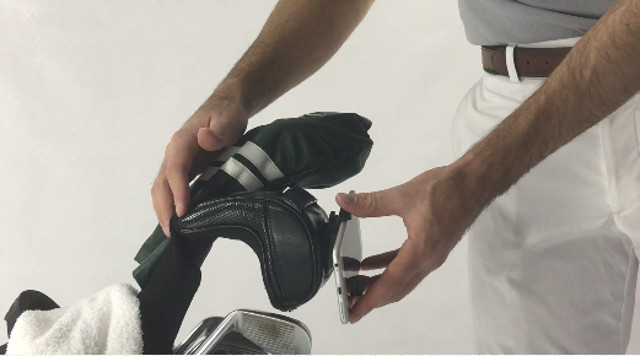
It's a fairway wood headcover that has a removable, spring-loaded phone mount clip. Just set your phone to its camera app, put it in the clip and attach it back to the headcover. All of a sudden, your 3-wood and golf bag have doubled into a tripod. Now you can film your swing with ease, including during your round without angering your buddies. It's $35 and a genius idea.
When I saw Fratkin, it was because a Golf Digest piece alerted me that he was even there. He was playing on his phone as people walked by -- a rookie mistake -- and I rolled up. Quite frankly, the conversation was one-sided. I told him what a cool product he had and that I hoped he did well. He was surprised he didn't have to match his pitch or explain it.
Go buy one. He'll be back next year, in a better spot, with way more booth traffic.
***
Michael Zisman is an engineer by training, but he's in the golf business now. Funny how a passion can drive you to do crazy things, like getting into the golf business, then drive you further to success.
Zisman is CEO of a company called Golf Genius Software. He's in the business of helping club professionals and golf course employees simplify their jobs with software that helps them run tournaments, leagues and outings through his interface. There's live scoring with a dedicated page, it can print out scorecards, figure out groupings and flighting -- pretty much all of the annoying stuff pros have to do that members and customers bitch about relentlessly.
The best part? It doesn't cost an arm and a leg. At just $2,800 per year for unlimited use, Golf Genius Software is, well, a no-brainer for pros. More than 400 clubs and facilities have started using the software which not only makes a pro's job easier but offers a value-add for the golf experiences they sell.
After 60 seconds of talking to Zisman, I was sold. Not but a few hours later, I saw my club pro and told him he needs to buy this -- another convenience of having most every golf person in Orlando at the same time.
***
Golf fashion is a tough business. There are a lot of names in the space, and everyone floods the market with every imaginable color and piece that it's hard for names to stand out and survive.
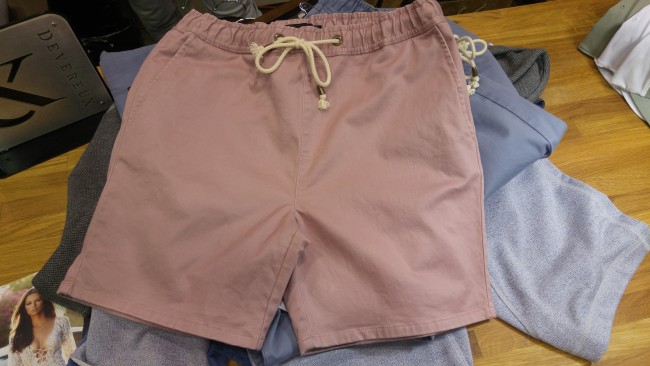
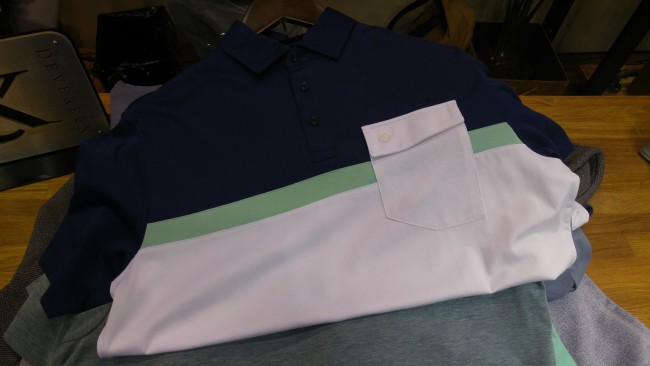
Robert and Will Brunner took a different approach with Devereux. They've been at this a while now, offering inspired, modern-fitting looks that work on and off the course. They've been the masters of pique, using regional fashion influences from different eras to offer high-end clothing.
Robert, who has fashion design training good enough for Fifth Avenue, knew he wanted to start small, see what the market had to say. Adjust, adapt, refine and renew.
The company was founded in 2013 and, three years later, the Brunners are bustling. They have a full line of looks to enhance their fashion point of view. They're clean, Americana-inspired looks this year, with a more diverse set of materials, colors and treatments. They sponsor PGA Tour winner Danny Lee now.
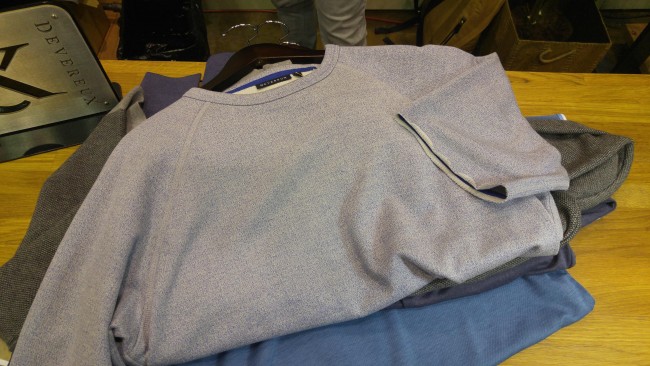
They've even classing up sweats. Somewhat unwittingly, Brunner churned out a short-sleeve sweatshirt design that he showed me in their booth on the show floor. It was a huge hit, but he didn't realize why until someone told him that it looked a lot like the self-done cutoffs worn by New England Patriots head coach Bill Belichick.
"I should've renamed it The Belichick," Brunner said.
Always learning.
Maide Golf came from the minds of a company that has it made. Bonobos was founded with the focus on creating better fitting men's clothes. If you've worn golf clothes over the years, you can understand why they thought they could make a splash in golf. Droopy butt is all too common.
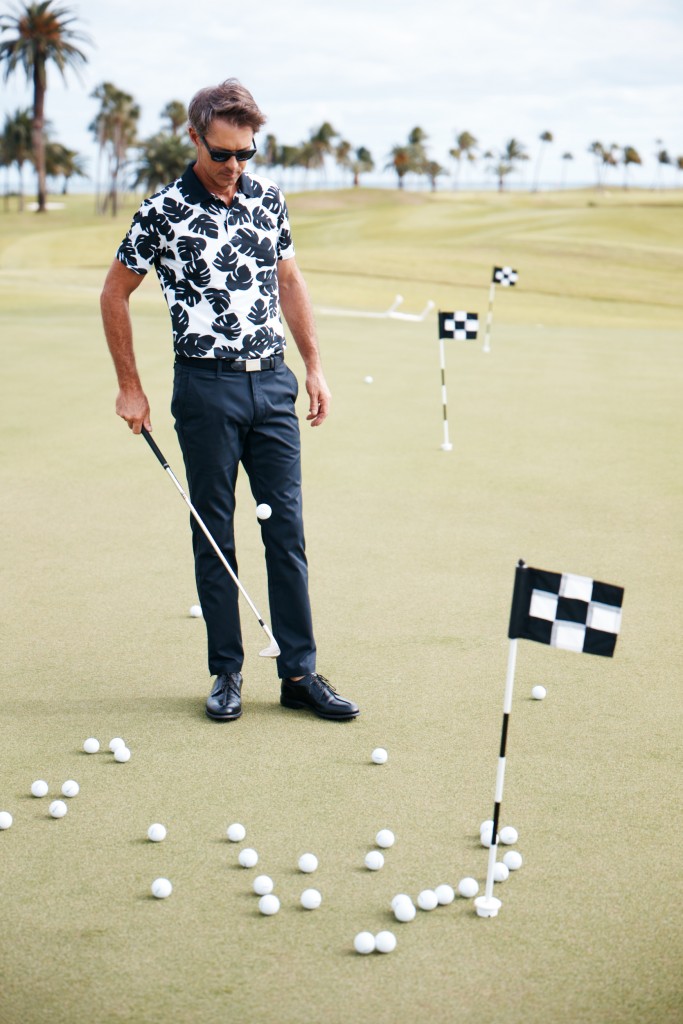
So they've been in the golf fashion game since, like the Brunners, 2013. They're both in the same modern-fit sphere of golf fashion. Maide has a different set of influences, perhaps a little more southern even if they're not from there. They're also diversifying, letting golfers decide where they want to sit on the pants spectrum, ranging from techy feel to classic chino. Like Devereux, the looks aren't cheap, but they're on point.
***
The Show goes by quickly. Really, it's two days, which seems like a long time when you're starting out but way too little when you're walking away. There's a lot to do, but for a first-time exhibitor, it boils down to making a winning first impression. For a returning brand, it's getting people to come back for seconds, thirds and fourths.
For me, it's connecting with people who have a story and a dream to sell and hoping that next year, not only will I see them again, but I'll see them bigger and better.

